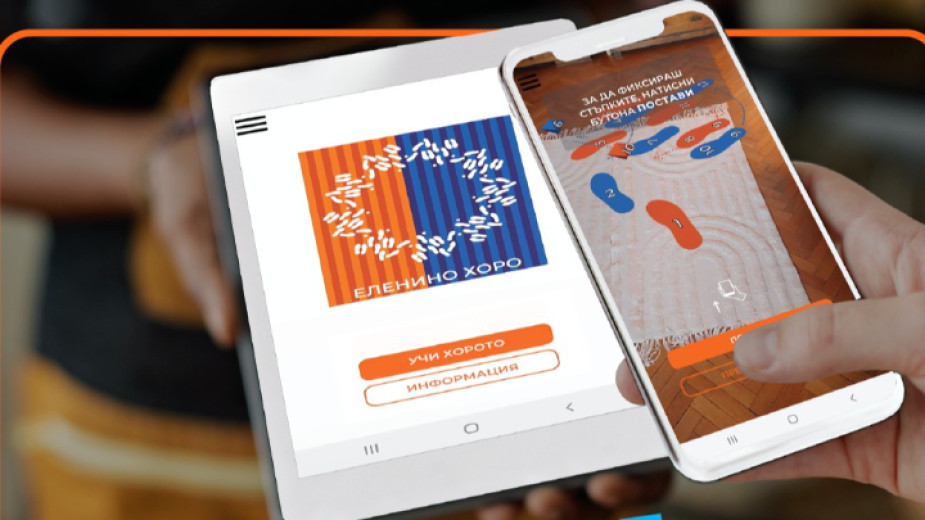Wherever you are in the world, as long as you have a smartphone and internet access, you can learn the intricate steps of the Bulgarian traditional horo dance. The new Taratanci game is free and it is based on augmented reality. "You just choose a choro, point your phone at the ground and follow the steps that appear on the floor on your phone screen," Ekaterina Petrova, co-founder of the Taratanci Foundation, told BNR-Stara Zagora in an interview.
"At the moment, we've uploaded four types of horo chain dance in the app̀ - Pravo horo, Graovsko, Raka and Elenino. It is active for android OS, but we will make the app available for download by users of other operating systems - Ms Petrova explains. The difference between Tataranci and other dance tutorials is the augmented reality - one can learn how to dance at home in the living room or in the park, for example. All you need to do is follow the steps. There are also voice commands to guide you. The game is a lot of fun and very creative."
It all started in 2014, when a handful of young Bulgarians decided to create a method for graphically depicting the steps of Bulgarian folk dances. Ekaterina Petrova remembers:
"Then someone had the idea to go to the nearest park and draw on the asphalt with chalk the steps of one of the easiest dances - the Chichovoto ("Uncle's horo"). We invited passers-by to try it and they began trying the steps, having great fun. So we decided to turn Taratantsi into an organization aimed at promoting Bulgarian folk dances in a new way."
Last summer, with the support of the National Culture Fund, the Taratantsi team embarked on a long journey through Bulgaria, visiting all the ethnographic regions. "We work with local choreographers and dance artists. They dip their feet in paint and as they dance they step on white patches, thus leaving footprints of the steps of the horo - Ekaterina Petrova says. - We travelled more than 7000 km across Bulgaria and took the footprints of another 80 horo dances. This way we already have a big database with footprints, which we are currently digitizing, and will be ready in a month. But we want to continue this work because there are an awful lot of Bulgarian horo dances - probably over 500, we don't know the exact number. And many of them are danced and known only by the older people in small hard-to-reach places. When these people are gone, the dance steps will be lost forever, if they are not documented for generations to come," Ekaterina Petrova concluded.
More about the magic of Bulgarian folk dances:
Compiled by Veneta Nikolova /based on an interview by Poli Guncheva from BNR- Stara Zagora/
English version: Elizabeth Radkova"We cannot escape from modern technologies, but we must think about how we can use artificial intelligence to improve the quality of education without losing human contact," said Mimi Nicheva, head of the Bulgarian Sunday School "Sts...
Nearly two centuries ago, in the distant 1838, the Bessarabian Archbishop Dmitry Kishinev and Khotinsky consecrated the magnificent Orthodox church "The Holy Transfiguration of the Lord" , built with voluntary donations and labor by the Bulgarian..
Bringing youthful energy, colour and cheer to the Bulgarian National Radio studio, students from the Bulgarian Sunday School Dr Petar Beron arrived from Larnaca. The group from Cyprus — 16 pupils aged between 14 and 19 — is currently on a week-long..
Under the motto "Responsibility, Unity and Security" on November 5 and 6, 2025, a German-Bulgarian seminar for journalists and public..
The European Commission praise s Montenegro’s progress toward EU membership North Macedonia needs decisive action and reforms to begin..
In the summer of 2014, photographer Philippe Bazin and philosopher Christiane Vollaire traveled around Bulgaria, investigating a series..

+359 2 9336 661
